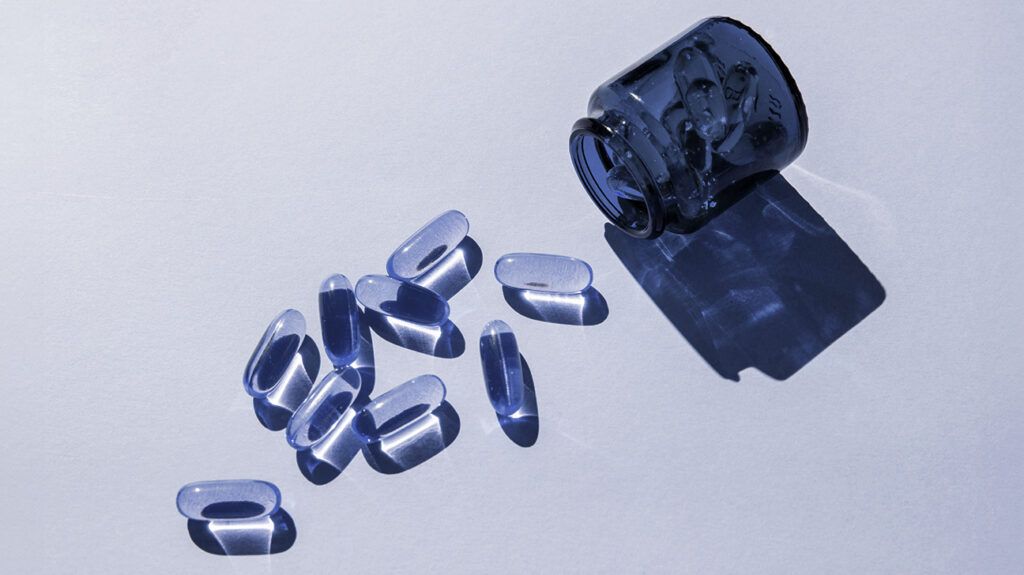Supplements are not part of standard eczema care, but some people report that they help their symptoms. A limited number of studies suggest that supplements may be effective.
The above information comes from a 2019 study published in Evidence-Based Complementary and Alternative Medicine.
However, the existing studies
While it is possible that additional research will yield clear evidence of benefits, most studies have not shown strong evidence, and there is no evidence that supplements should replace typical care.
Read on to learn more about supplements for eczema.

A small body of research suggests that supplements could potentially help with eczema, but the research is weak and inconsistent. Studies are generally small, and some find either no benefit at all or only small improvements. Most do not control results with a placebo.
Research on supplements
A 2019 systematic review explored previous research on several supplements, including vitamins D3, E, and B12.
All three vitamins improved symptoms of eczema on the SCORing Atopic Dermatitis (SCORAD) Index or Eczema Area and Severity Index (EASI). Vitamin D3 offered the greatest improvements, with an average improvement of 5.96 points, compared to 5.12 points for vitamin E, and 3.19 for vitamin B12.
However, a 2022 review was less promising. Reviewing 11 studies with 596 participants, researchers looked at selenium, vitamin D, fish oil, vitamin E, vitamin B6, sunflower oil, sea buckthorn oil, and hemp seed oil compared to a placebo. The studies found either weak or no evidence supporting the use of these supplements.
The authors noted that their data does not disprove the potential benefits of supplements — this is because the included studies were generally small and of low quality.
Research on probiotics
Researchers are increasingly interested in the role of probiotics in treating eczema. Some theorize that probiotics can prevent the immune system from attacking the skin barrier or otherwise reduce inflammation by promoting the development of healthy bacteria.
A 2022 meta-analysis explored the potential benefits of probiotics. Researchers assessed whether taking probiotics during pregnancy could reduce the risk of eczema and the extent to which early probiotic supplementation could prevent eczema.
A birthing parent’s use of probiotics during pregnancy correlated with a lower overall risk of eczema, and in children under 2 years old it also reduced the risk of eczema. After the age of one, probiotics also seemed to reduce symptoms of atopic eczema.
However, the study did not test probiotics in adults or as a long-term eczema treatment.
Researchers have looked at many supplements.
Across studies, the most effective have been probiotics for preventing eczema. Vitamins D, E, and B12 may help with treating eczema. The overall effects, however, have been small, and there is no evidence any supplement can cure eczema.
Some other supplements researchers have tested, with weak or nonexistent results, include:
- selenium
- vitamin D
- fish oil
- vitamin B6
- sunflower oil
- sea buckthorn oil
- hemp seed oil
While some people anecdotally report improvements with these supplements, research does not lend significant support to their use.
The Food and Drug Administration
Some major concerns with supplements include:
- Supplements may interact harmfully with other medications.
- Supplements may reduce the effectiveness of a person’s other medications.
- Supplements may cause allergic reactions or side effects.
- A person may replace effective treatments with ineffective supplements, causing their symptoms to worsen.
Evidence supports the following treatments:
- lifestyle changes to reduce exposure to irritants and dry air
- an aggressive daily moisturizing routine
- avoiding harsh detergents
- avoiding fragrances on the skin
- using steroid-free eczema lotions
- using steroid creams during flares
- identifying triggers and reducing exposure to them
Supplements are not a standard treatment for eczema. While some research supports their use, the studies that find benefits are generally small and poorly designed.
Like any medication, supplements can cause side effects. For this reason, a person should discuss all medications, including supplements, with a doctor.
Supplements work best as a complement to standard care, not a replacement.
